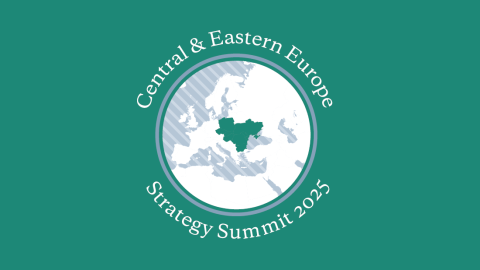Talks between the United States and Canada on border security cooperation (Beyond the Border) and regulatory cooperation have been underway for more than a year, and are making some promising progress.
That is important to acknowledge and even to celebrate, because unfortunately the odds are stacked against this latest iteration of bilateral partnership.
In the United States, presidential second terms almost always disappoint, as the president enters "lame duck" status and political attention and energy move on.
A previous attempt to improve upon U.S.-Canadian relationship management, the Security and Prosperity Partnership (was a second term initiative of President George W. Bush, who launched it after a big election win that gave him political momentum and political capital to invest in North American relations.
President Obama won by smaller margin in 2012 than in 2008, and his momentum already appears to be flagging with high profile defeats on budget reforms and gun control legislation. A weak partner in Washington makes it harder for Ottawa to get what it wants from bilateral initiatives.
There is also a lot of competition. The U.S.-Canadian border and regulatory initiatives are part of the new approach of U.S. trade negotiators to address the governance of cross-border economic activity by collaborating on regulation and inspection procedures and information-sharing among governments.
The same agenda is central to the Trans Pacific Partnership (TPP) talks, and to the Transatlantic Trade and Investment Partnership (TIP) talks, and the United States has parallel border and regulatory negotiations underway with Mexico.
If Canada offers major concessions to the United States, the U.S.-Canadian talks could become the model for others much as the Canada-United States Free Trade Agreement became the model for NAFTA and the Uruguay Round of world trade talks.
>But there is more flash and excitement in Washington and on Wall Street for the Asian, European and even Mexican talks; Canada, already a mature market and hassle-free partner suffers a lack of sizzle for the ADHD American political and financial elites. And Canada has options too: Canadian negotiators are at the TPP table, have their own talks with Europe nearly done, and are engaging China and India too.
Moreover, on the U.S. side there is a dearth of talent and expertise available for Canadians to partner with. It is an adage in Washington that "personnel is policy" and no one knows this better than U.S. Ambassador to Canada David Jacobson, who served in the White House Office of Presidential Personnel during Obama's first term prior to his confirmation as the president's personal representative to Canada.
Jacobson has been a key player in the Beyond the Border and regulatory cooperation talks, championing them within the Obama administration and keeping them on track when they threatened to stall. His departure, now widely-expected later this year, will be a major loss for the prospects for Beyond the Border and the Regulatory Cooperation Council, as even a terrific successor will need time to master the complexity of their agendas.
And while there are many talented members of the Obama administration, there is no one familiar enough with the Canadian relationship, senior enough to engage the president and his cabinet, and imaginative enough to envision the potential in a bilateral relationship that could again become a model for the world particularly during a period when Prime Minister Stephen Harper leads a majority government that is the most U.S.-friendly in decades.
It is hard not to be disappointed in the substance of the U.S.-Canadian partnership in 2013. Instead of thinking big, our leaders are getting tangled in the petty (but crucial) politics of building a new Detroit-Windsor bridge and the Keystone XL pipeline extension worthy, visionary projects that should be easier. That they aren't is indicative of the climate for improving on the bilateral relationship.
Weaker U.S. presidential engagement, distractions from more exotic partners, change in key personnel, and an overall climate that makes even common sense projects difficult to advance all of these lead to the promotion of the U.S.-Canadian partnership en passant if at all.


















